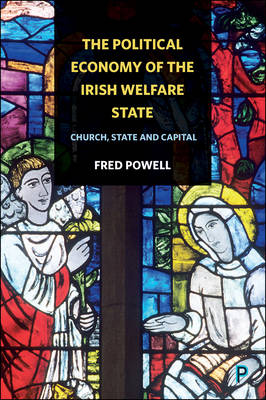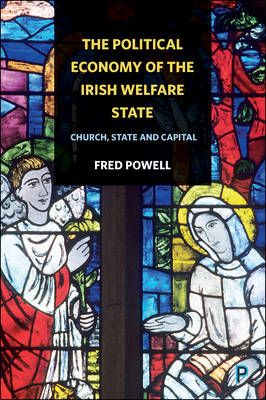
- Retrait gratuit dans votre magasin Club
- 7.000.000 titres dans notre catalogue
- Payer en toute sécurité
- Toujours un magasin près de chez vous
- Retrait gratuit dans votre magasin Club
- 7.000.0000 titres dans notre catalogue
- Payer en toute sécurité
- Toujours un magasin près de chez vous
The Political Economy of the Irish Welfare State
Church, State and Capital
Fred PowellDescription
The political economy of the Irish welfare state provides a fascinating interpretation of the evolution of social policy in modern Ireland, as the product of a triangulated relationship between church, state and capital.
Using official estimates, Professor Powell demonstrates that the welfare state is vital for the cohesion of Irish society with half the population at risk of poverty without it. However, the reality is of a residual welfare system dominated by means tests, with a two-tier health service, a dysfunctional housing system driven by an acquisitive dynamic of home-ownership at the expense of social housing, and an education system that is socially and religiously segregated.
Using the evolution of the Irish welfare state as a narrative example of the incompatibility of political conservatism, free market capitalism and social justice, the book offers a new and challenging view on the interface between structure and agency in the formation and democratic purpose of welfare states, as they increasingly come under critical review and restructuring by elites.
Spécifications
Parties prenantes
- Auteur(s) :
- Editeur:
Contenu
- Nombre de pages :
- 304
- Langue:
- Anglais
Caractéristiques
- EAN:
- 9781447332916
- Date de parution :
- 01-10-17
- Format:
- Livre relié
- Format numérique:
- Ongenaaid / garenloos gebonden
- Dimensions :
- 157 mm x 236 mm
- Poids :
- 521 g

Les avis
Nous publions uniquement les avis qui respectent les conditions requises. Consultez nos conditions pour les avis.






